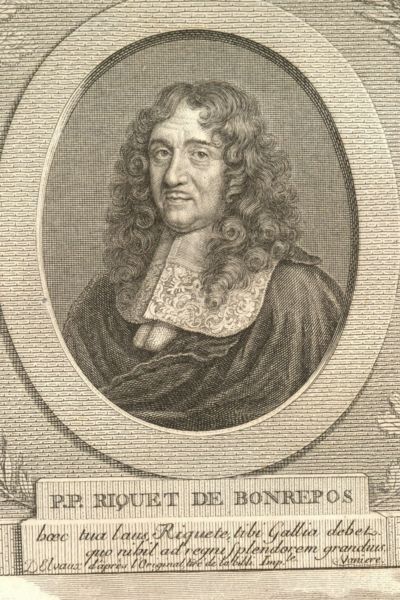
Riquet's motivation: restoring his family's noble status
Since his family lost their noble title, Pierre-Paul Riquet spent his career trying to earn himself a title and restore his family's name. He was ambitious and forward-thinking, and his meeting with Jean-Baptiste Colbert was the first step in making his dream come true and build a Royal canal between the two seas. What a great way to make his mark on history, and earn a title that would stand the test of time!
The Riquet family, fallen nobles
Pierre-Paul Riquet was born into a noble family from Béziers. But during the 16th century, his family lost their noble status due to the professional activities of Pierre-Paul Riquet's grandfather.
As a consequence, the Riquet family were treated as commoners. It is very likely that the consequences of losing this noble status and their efforts to restore the family name left a mark on the whole family, including Pierre-Paul Riquet!
Did you know?
Even without a noble status, the Riquet family still had some influence in Béziers as Pierre-Paul Riquet's father had a seat on the Council of Trent of Béziers.
Pierre-Paul Riquet, paving his path to nobility
A profitable career…
In 1634, Pierre-Paul Riquet began his career at the salt storehouses in Mirepoix. He was a tax farmer for the 'gabelle' (salt tax) of Languedoc. This tax was highly unpopular because it was collected by a private officer (tax farmer) who then paid a share to the King and took his own salary from the taxes paid.
Thanks to his tax farmer salary and also to his entrepreneurial spirit, we have to say, Riquet developed other just as profitable sources of revenue such as organising the transport of salt between the region of Narbonne and inland Languedoc.
He was ambitious and so he reinvested some of his profits into other activities, including interest-bearing loans.
The Seigneurie de Bonrepos manor house
After a period of 20 years, he had accumulated a considerable fortune!
And so in 1651, Riquet purchased the Seigneurie de Bonrepos manor house. He then completely rebuilt the old château...
The Seigneurie de Bonrepos was set in vast grounds and that is where Riquet worked on developing his knowledge of hydraulics. Using the bodies of water on his estate, he carried out tests that helped him for his canal project.
The construction of the Canal du Midi thanks to two ambitious men
The Canal du Midi would most likely have never been built if Riquet hadn't met Jean-Baptiste Colbert.
Colbert was just as ambitious as Riquet, and as controller-general of finances to the King at the time, he planned on developing the Kingdom's economy via communications routes, both on sea and land, by national and reliable means. Pierre-Paul Riquet had to convince him that his canal project would be of benefit to this new economic policy.
To prepare for his meeting with Colbert, Pierre-Paul Riquet called on the help of some influential men. He persuaded his suzerain Charles François d’Anglure de Bourlemont to act as guarantor for his company.
Riquet therefore presented his canal proposal to Colbert, insisting on the economical and strategic benefits. This waterway would provide merchant boats and the King's galleys another route to avoid passing via Gibraltar.
Thanks to his own mercantile activities, Riquet was well aware of the economic situation in Languedoc and of the 'woad crisis' (a plant used as a blue dye) that the area was experiencing. That is when the territory lost a part of the farming industry to competition from indigo production in the Americas.
That was all the persuasion Colbert needed. In this canal project, he saw an opportunity to revive the farming industry by opening up Languedoc and therefore making France a productive, export-driven country.
Is it not my confidence that pleased you, and that under the rule of the most perfect and greatest King that the world has ever seen, I will create the greatest engineering structure ever to have been designed?
Pierre-Paul Riquet
Letter from Riquet to Colbert of 13 June 1668 / Canal du Midi archives, batch 21 item 9
Pierre-Paul Riquet was awarded his title
In 1663, Louis XIV was convinced of the canal project and of its benefits, as much for his own personal glory as for his people. After having various studies done to validate the feasibility of the project, Louis XIV appointed Pierre-Paul Riquet as entrepreneur of the construction of the Canal Royal du Languedoc (former name of the Canal du Midi) in October 1666, and awarded him the title of Baron de Bonrepos.












